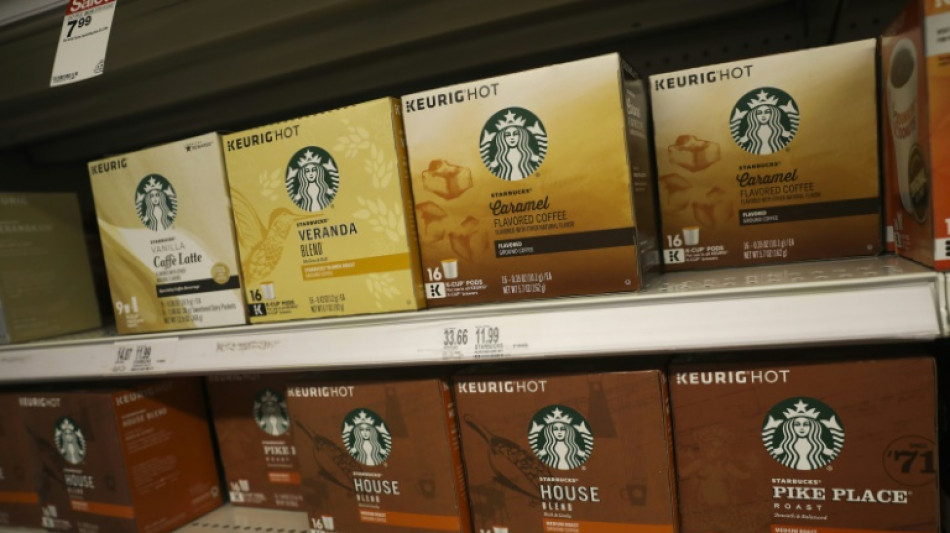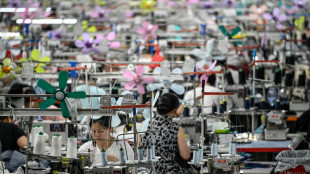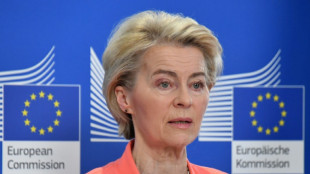

Nestle cautious on 2022 targets, given rising costs
Swiss food giant Nestle was cautious Thursday about its 2022 targets in the face of rising costs, despite robust results thanks to its shift towards the booming vegetarian market.
Like its British competitor Unilever or the Dutch brewer Heineken, Nestle reported a significant increase in its costs last year for raw materials, packaging, transport and energy.
Businesses have faced supply chain disruptions and decades-high inflation as the global economy recovers from the Covid-19 pandemic and energy prices surge.
Faced with exceptional inflation, Nestle hiked its prices -- in particular during the last quarter, when they went up 3.1 percent -- as the agri-food sector as a whole passes on cost increases to consumers.
Nestle -- which makes everything from coffee to pet food and plant-based products -- nevertheless published better-than-expected 2021 results.
Nestle's organic growth -- which excludes the effects of acquisitions or divestments to focus on a company's core operations -- reached 7.5 percent, exceeding objectives, with coffee the largest contributor.
This is its "best organic growth since 2011", said Zurich Cantonal Bank analyst Patrik Schwendimann.
Organic growth had been 3.6 percent in 2020.
- Profits up 38% -
Nestle's operating margin was however slightly below its forecasts, at 17.4 percent against a predicted 17.5 percent, due to cost increases.
On top of this came the costs of integrating the brands of The Bountiful Company, a US dietary supplements firm, as well as impairments on its baby formula brand Wyeth.
Net profit bounced 38.2 percent higher to 16.9 billion Swiss francs ($18.3 billion, 16.1 billion euros) last year, fuelled by the sell-off of shares in the cosmetics company L'Oreal.
Nestle was less optimistic in its forecasts for 2022, lowering the bar for its organic growth target to five percent, while it also expects an operating margin of 17-17.5 percent.
"It is conservative, because I think being conservative in a volatile environment with significant inflation around us and uncertainty about what will happen this year is the right way to approach it," Nestle chief executive Mark Schneider told reporters.
The targets point to a "more pronounced decline" in profitability than Nestle previously forecast, but the group is "steering through the rising input cost environment better than peers", said Andreas von Arx, an analyst at Baader Helvea.
- Going veggy -
Jean-Philippe Bertschy, an analyst at Vontobel private bank, judged these results "robust", highlighting that the efforts to reposition the product range facilitated "widening the gap to the competition".
To boost growth, Nestle has launched a major shake-up of its product portfolio, emphasising more buoyant and higher-margin sectors such as vegetarian alternatives to meat, fish and dairy products.
Total sales rose 3.3 percent to 87.1 billion francs as catering sales recovered and price hikes accelerated in the last quarter under inflationary pressure.
The improved results were driven by coffee -- in particular by pods marketed under the Starbucks brand -- pet food and the rapidly-expanding vegetarian products sector.
On the sidelines of its results, the group announced that it would nominate Luca Maestri, Apple's chief financial officer, to join its board of directors.
Its dividend for 2021 will be increased by five centimes to 2.80 francs per share.
At 1500 GMT, Nestle shares were down 0.22 percent at 117.04 Swiss francs, while the Swiss stock exchange's main SMI index was down 1.20 percent.
W.Murphy--NG



